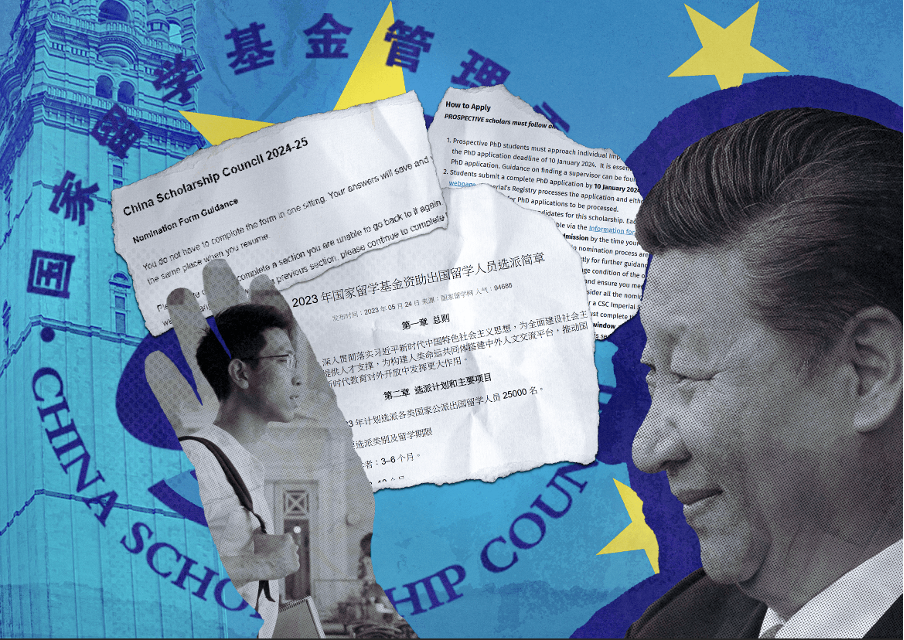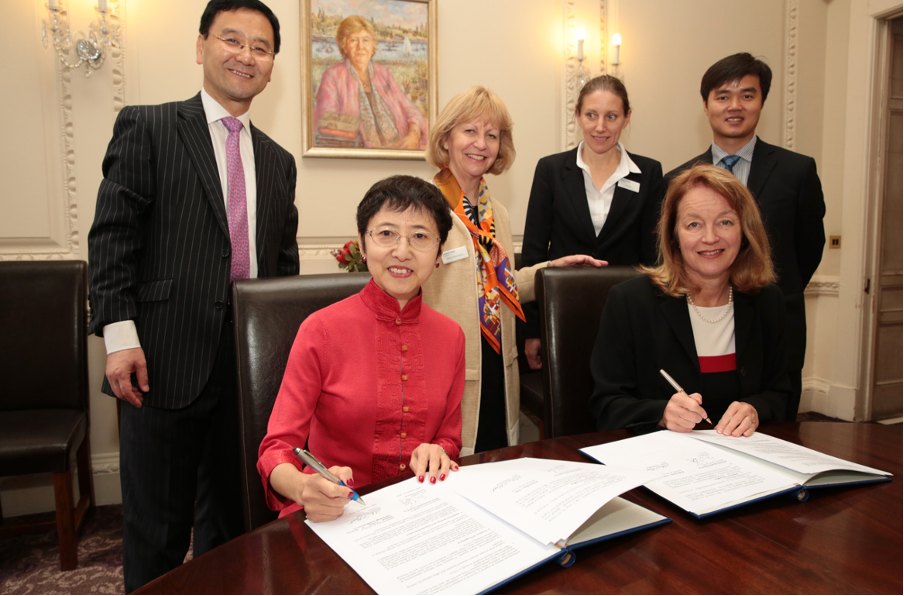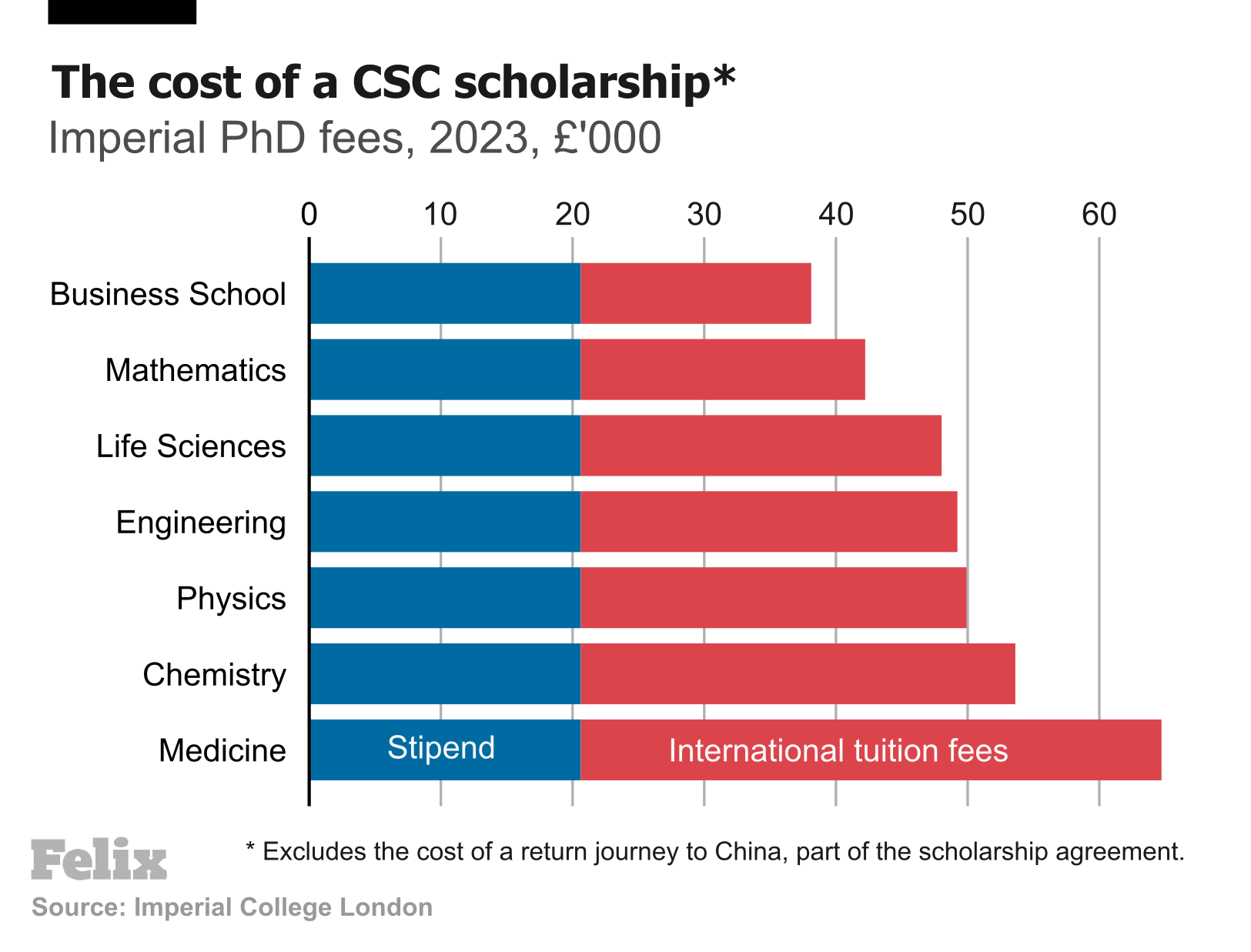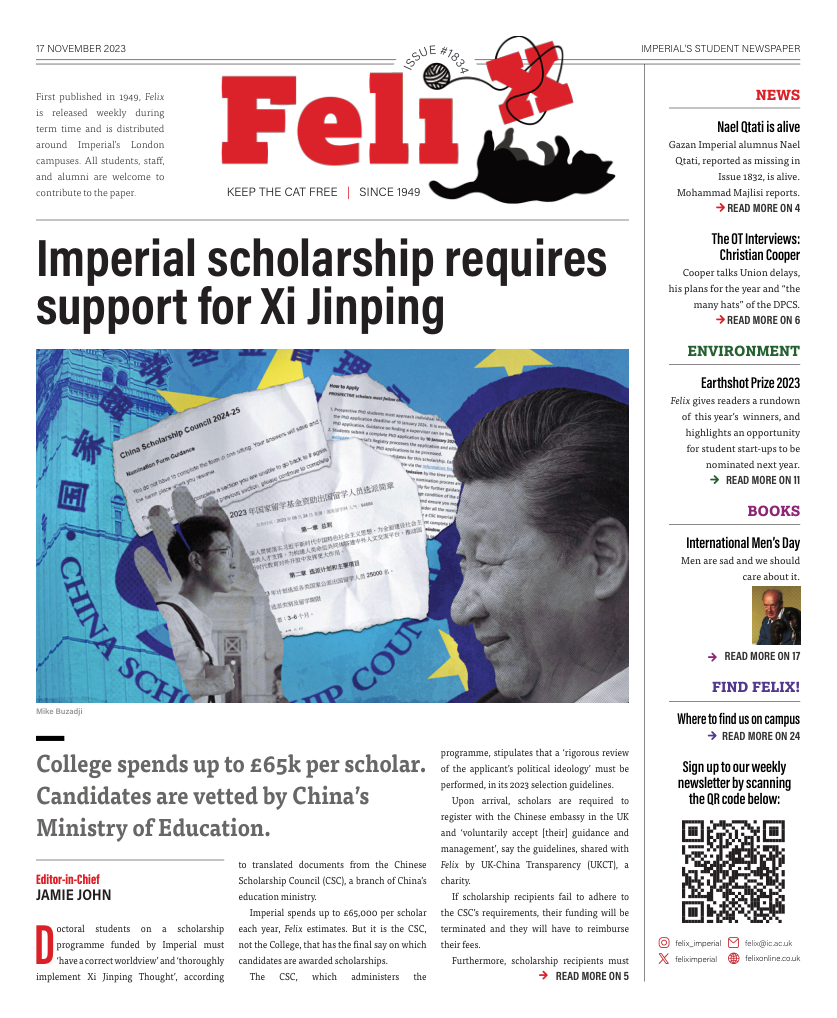Chinese government vets Imperial scholarship recipients
Imperial spends up to £65,000 per scholar. Candidates must ‘thoroughly implement’ Xi Jinping’s doctrine.

Doctoral students on a scholarship programme funded by Imperial must ‘have a correct worldview’ and ‘thoroughly implement Xi Jinping Thought’, according to translated documents from the Chinese Scholarship Council (CSC), a branch of China’s education ministry.
Imperial spends up to £65,000 per scholar each year, Felix estimates. But it is the CSC, not the College, that has the final say on which candidates are awarded scholarships.
The CSC, which administers the programme, stipulates that a ‘rigorous review of the applicant’s political ideology’ must be performed, in its 2023 selection guidelines.
Upon arrival, scholars are required to register with the Chinese embassy in the UK and ‘voluntarily accept [their] guidance and management’, say the guidelines, shared with Felix by UK-China Transparency (UKCT), a charity.
If scholarship recipients fail to adhere to the CSC’s requirements, their funding will be terminated and they will have to reimburse their fees.
Furthermore, recipients must return to China for at least two years after completing their PhDs.
A total of 37 UK universities have partnerships with the CSC.
Many of those pay only for tuition fees, suggests a report by think tank Civitas – while the CSC funds a maintenance allowance.
However, Felix has found that Imperial’s departments pay for the maintenance allowance, and the College’s Student Financial Support team covers international fees.
‘Funding for the scholarships is split between the CSC and the College,’ claims Imperial in an internal application form, but it is unclear what the CSC pays for. The College has been approached for comment.

‘UK universities are haemorrhaging millions of pounds a year in subsidised student fees for ideologically acceptable Chinese students to study in the UK – only to return straight back to the PRC [People’s Republic of China] once their studies are finished,’ wrote Civitas Director of Defence and Security Robert Clark, in a report on CSC scholarships at UK universities.
In July this year, one of Germany’s largest universities, the University of Erlangen–Nuremberg, suspended its own CSC scholarship programme, citing concerns around ‘industrial espionage.’
‘The reason behind this decision is that these CSC students sign a contract in which they pledge absolute allegiance to the state, as well as undertaking to remain in contact with the Chinese embassy at all times,’ wrote the university in a letter to its staff.
A similar private contract between the CSC and its scholars, obtained by Sweden’s Karolinska Institute, stated that two guarantors are obliged to repay the entire scholarship, should the recipient breach its terms.
It commits scholarship recipients to ‘regularly submit a “Situation Report” to the Chinese embassy’ and ‘participate in annual PhD student reviews’ there. The Karolinska Institute suspended its CSC arrangement in January 2023.
A Russell Group spokesperson said that before coming to the UK, every Chinese applicant studying for a ‘higher degree in a sensitive area’ must pass ‘enhanced security checks’ through the Government’s academic technology approval scheme.
’International collaborations and education exports have helped deliver huge research breakthroughs and generate income which is reinvested in quality teaching for home students but universities know these activities come with risks and work closely with the Government to protect UK security.’
The funding agreement
Imperial’s website outlines what the CSC Imperial Scholarship funds. Each scholarship covers:
- ‘International tuition fees’ [covered by Imperial Student Financial Support]
- ‘Maintenance allowance equal to Imperial’s minimum stipend allowance in any given year (£20,622 in 2023-24) per year’ [paid for by the nominating Imperial department]
- ‘One economy class return journey to China’
Scholars are funded for three to four years of study.
At Imperial, annual PhD tuition fees for overseas students range between £17,500 (Business School) and £44,100 (Faculty of Medicine).
Stipends amount to £20,622 per student this year, and the College is offering 15 new CSC scholarships for 2024/25 - in addition to its ongoing ones.

Assuming that all 15 scholars will pay the lowest tuition fees (Business School, £17,500), and adding the £20,622 stipend to this, Felix projects that Imperial will spend £38,122 per head - or over half a million pounds in total - on new scholarships next year.
If instead, all 15 scholars pay the highest tuition fees (Medicine, £44,100), the College is projected to spend £64,722 per head - or close to a million pounds in total.
Felix is yet to obtain information on the total number of CSC scholars at Imperial.
How applications are processed
- Applicants must be from mainland China, and must secure a PhD offer – as any other PhD applicant would. Imperial departments then nominate a maximum of three candidates each for the CSC programme.
- Nominations are initially assessed by an internal panel which produces a list of students for recommendation.
- These students are asked to complete an external application form on the CSC’s website.
- The CSC conducts its own reviews and informs students of the final outcome.
A Universities UK spokesperson said: ‘Universities take their security responsibilities extremely seriously. Any research partnerships and collaborations must comply with stringent regulations, including approval through the UK’s export control regime where appropriate.’
‘Beyond such compliance, all university led research projects and collaborations involving funding will go through a robust due diligence process, and projects should be reviewed periodically.’
‘While we cannot comment on the specific claims made in the report, we would note that China remains – as outlined by the Government – an important partner for the UK. Our continued bilateral cooperation, when conducted in line with UK regulations and best practice, is in our strategic national interest.’
UKCT's entire digital library of UK-China documents is accessible here.






